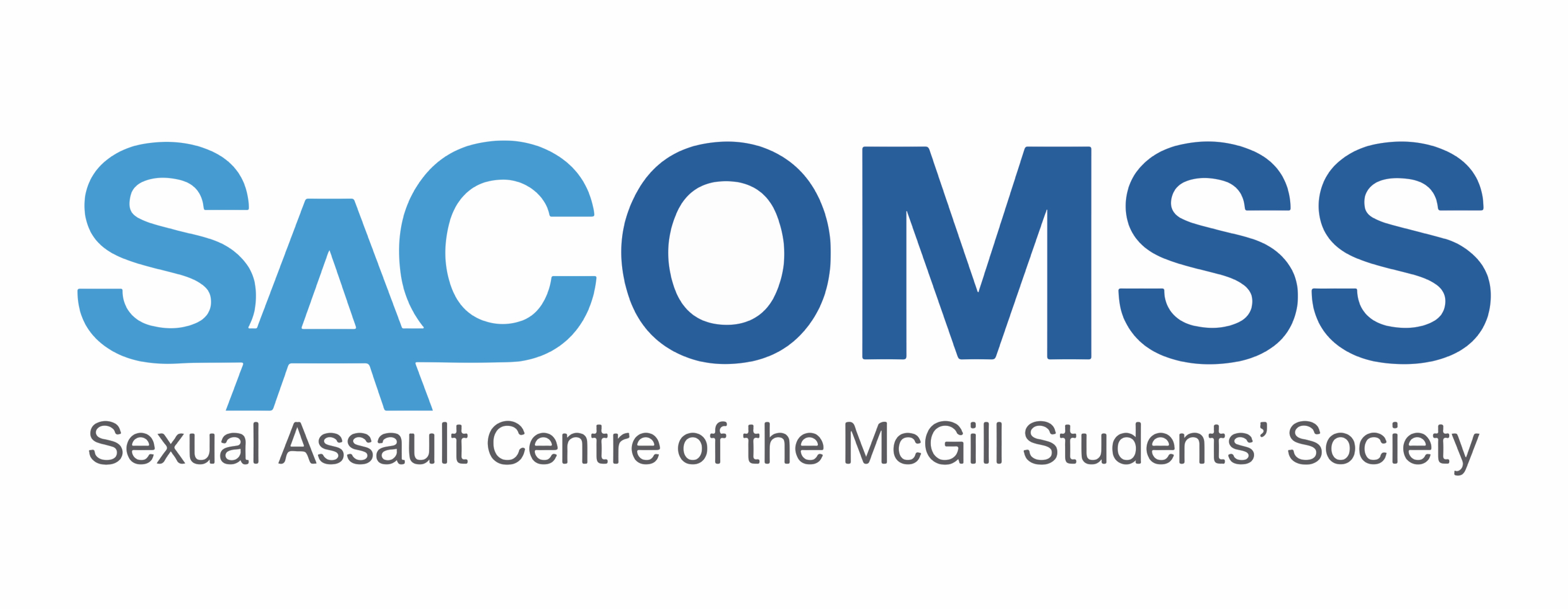History
The Sexual Assault Centre of McGill Students’ Society (SACOMSS) is a volunteer and student-run organization based at McGill University in Montreal, Quebec. It was founded by a group of concerned students in 1991, under the auspices of the Students’ Society of McGill University (SSMU). To our knowledge, it is the first student-initiated and student-run sexual assault centre at a Canadian university. SACOMSS is funded by an annual budget allowance from SSMU with funding from the student body.
Sexual assault services at McGill began with the McGill Coalition Against Sexual Assault (MCASA), which met for the first time in 1988. MCASA became the parent organization of many groups including the McGill Sexual Assault Centre (MSAC) and the Walk-Safe Network in the fall of 1991.
MSAC’s day office was set up in 1992 with approximately 30 volunteers who attended to a phone line. At this time, there was also an Outreach initiative consisting of a panel of women who gave presentations about sexual assault. The Centre also offered an Accompaniment Team, escorting survivors to the hospital or the police. Support Groups began in 1992, when Harle Thomas initiated a group to address the lack of services for male survivors of sexual assault.
Over the next few years, MSAC evolved to better address the needs of the Montreal community. In 1992-1993, Outreach incorporated male volunteers in its previously female-only panel to high schools to co-facilitate discussions. In 1995-1996, MSAC instituted more comprehensive training. The Centre was renamed SACOMSS in 1993-1994 in response to legal threats from McGill University. A-Branch, rooted in the work of the Accompaniment Team, was developed in 1995 and volunteers began helping survivors through the McGill sexual harassment procedures in the spring of 1996. In May 1997, Support Groups began comprehensive training with a newly created manual and began to expand services.
The Centre’s mandate has continually been shaped, drafted, and rewritten as SACOMSS identifies and represents its goals and values. In 2018, SACOMSS united with Concordia University to stage a walkout demanding action and accountability from administration and through policies and procedures. In 2020, SACOMSS transitioned its services to remote platforms to enable the continuation of services to the McGill and Montreal community amidst the COVID-19 pandemic, and has since continued to offer these services in-person and remotely.
To learn more about any of our services, mandates, or to get involved, please visit pages above.
